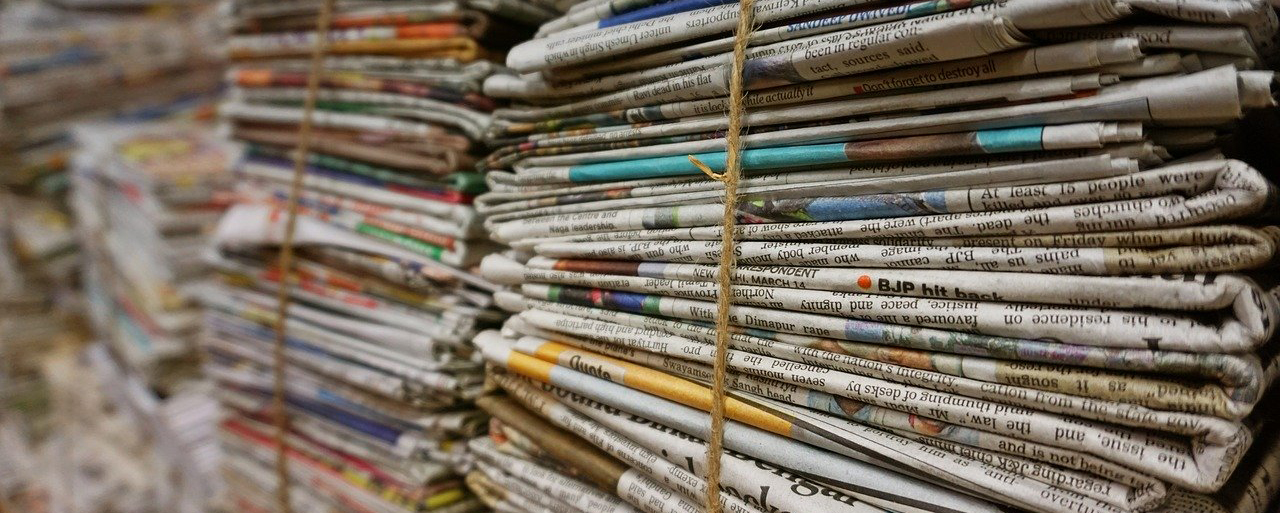Index relies entirely on the support of donors and readers to do its work.
Help us keep amplifying censored voices today.
The Autumn 2023 issue of Index looks at blasphemy laws, and how they are being weaponised by the religious right as a means of imposing intolerance. We wanted to understand the ways in which religion is being used by states as an excuse for censorship, and how this has played out in a global context.
The writers in this issue have examined blasphemy laws in countries all over the world, shining a light on the those who have been left voiceless or have been persecuted in the name of religion. These worrying stories paint a picture of a growing movement amongst the religious right that threatens to suppress those who do not conform to increasingly strict cultures and norms.
Faithful foot soldiers, by Jemimah Steinfeld: The religious right is in, our rights to speech out.
The Index, by Mark Frary: From fraught elections in Mali to Russians launching VPNs, this is free expression in focus.
Oiling the wheels of injustice, by Francis Clarke and Mark Frary: Behind a mega-city construction and the roar of Formula 1, Saudi Arabia is driving human rights further into the ground.
Pinochet's ghost still haunts, by Juan Carlos Ramírez Figueroa: The Chilean dictator is long gone, but support lingers on.
The dissident lives on, by Martin Bright: The dissident is not dead, long live the dissident.
No place to hide, by Nik Williams: Transnational repression has no borders in a digital world.
Peer pressure, by Thiện Việt: In China, enforced social rankings aren’t just confined to the realms of Black Mirror.
No country for anxious men, by Laura Silvia Battaglia: A mental health crisis in Yemen has left people locked up with no voice.
Nollywood gets naked, by Tilewa Kazeem: It’s getting hot in Nigeria, as the film scene strips back on what’s deemed inappropriate.
Policing symbolism, by Jimena Ledgard: Peruvian protesters are being met with violence, and not even flower carpets are safe.
Setting the story straight, by Danson Kahyana: Uganda’s new anti-homosexuality law is having an unexpected effect, with literature being ripped apart.
A marriage made in transgression, by Alexandra Domenech: Despite being tortured by security forces and her fiancé thrown in jail, Russian dissident Alexandra Popova is staying put in Moscow.
Out of the oven, into the fire, by Mir Aiyaz: Rohingya Muslims hoping for open arms in India are getting a cold reception.
For the love of God?, by Rebecca L Root: As intolerance rises in many parts of the world, a misplaced profanity can spell out death.
Worshippers of power, by Jemimah Steinfeld: Under the eye of the religious right, Margaret Atwood discusses why a blasphemy accusation holds so much power.
King David he is not, by JP O'Malley: The USA's religious right is playing the Trump Card.
No sex please, we're Hindus, by Salil Tripathi: Oppenheimer isn't just breaking box office records, it's offending Hindu nationalists.
In the name of the father?, by Francis Clarke: A far from extensive list of the countries currently imposing sentences on those who "offend".
A call to harm, by Ayesha Khan: Pakistan has some of the world's harshest blasphemy laws, but punishments come from those outside the law too.
The blasphemy obstacle course, by Mai Al-Nakib: Kuwait's rocky relationship with blasphemy laws is breeding a generation of self-censored authors.
Self-worship is the new religion, by Tara Isabella Burton: A new faith is emerging and it's not necessarily open to different views.
Think of the children, by Katie Dancey-Downs: When Juno Dawson's stories are banned, is it really about the books?
Turkey's zealots still want blood, by Kaya Genç: A foundation related to the controversial and failed translation of The Satanic Verses continues to be attacked.
Sharia Law and disorder, by Kola Alapinni: When the state fails to step in, violent mobs control the punishments for blasphemy in Nigeria.
Loose hair in Tehran, by Farnaz Haeri: The writer describes her first time walking out in Iran without a headscarf.
Handmaid's tale in a holy land, by Jo-Ann Mort: In an Israel that is eroding women's rights, female-free billboards and segregated beaches are just some of the battlegrounds.
Practise what they preach, by Simon Coates: Religious values are an excuse to eradicate LGBTQ+ discussion in the UAE, while tolerance is forgotten.
Poland's papal problem, by Kseniya Tarasevich: One Pope's lack of integrity paints a picture of Poland's infiltrated politics.
Turkish and European courts failed me, by Nedim Türfent: How one journalist swapped a press card for a "terrorist" badge.
Truth in seduction, by Mark Hollingsworth: A historian struggles to lift the cloak of secrecy on a KGB-orchestrated sex scandal.
First they came for the female journalists, by Zahra Joya: The space for women in Afghanistan is ever-diminishing, and female journalists are crucial.
Speak, debate, challenge, by Ruth Anderson: Index's guiding framework remains the same in a 2023 context.
Will Paulina ever rest?, by Ariel Dorfman and Jemimah Steinfeld: The Death and the Maiden protagonist fights for justice once more. Plus an exclusive new short story.
Lines of inquiry, by Richard Norton-Taylor: The thorn in intelligence establishment's side explains the growing pressure on whistleblowers
A major new global ranking index tracking the state of free expression published today (Wednesday, 25 January) by Index on Censorship sees the UK ranked as only “partially open” in every key area measured.
In the overall rankings, the UK fell below countries including Australia, Israel, Costa Rica, Chile, Jamaica and Japan. European neighbours such as Austria, Belgium, France, Germany and Denmark also all rank higher than the UK.
The Index Index, developed by Index on Censorship and experts in machine learning and journalism at Liverpool John Moores University (LJMU), uses innovative machine learning techniques to map the free expression landscape across the globe, giving a country-by-country view of the state of free expression across academic, digital and media/press freedoms.
Key findings include:
The countries with the highest ranking (“open”) on the overall Index are clustered around western Europe and Australasia - Australia, Austria, Belgium, Costa Rica, Denmark, Estonia, Finland, Germany, Ireland, Latvia, Lithuania, Netherlands, New Zealand, Norway, Portugal, Sweden and Switzerland.
The UK and USA join countries such as Botswana, Czechia, Greece, Moldova, Panama, Romania, South Africa and Tunisia ranked as “partially open”.
The poorest performing countries across all metrics, ranked as “closed”, are Bahrain, Belarus, Burma/Myanmar, China, Cuba, Equatorial Guinea, Eritrea, Eswatini, Laos, Nicaragua, North Korea, Saudi Arabia, South Sudan, Syria, Turkmenistan, United Arab Emirates and Yemen.
Countries such as China, Russia, Saudi Arabia and United Arab Emirates performed poorly in the Index Index but are embedded in key international mechanisms including G20 and the UN Security Council.
Ruth Anderson, Index on Censorship CEO, said:
“The launch of the new Index Index is a landmark moment in how we track freedom of expression in key areas across the world. Index on Censorship and the team at Liverpool John Moores University have developed a rankings system that provides a unique insight into the freedom of expression landscape in every country for which data is available.
“The findings of the pilot project are illuminating, surprising and concerning in equal measure. The United Kingdom ranking may well raise some eyebrows, though is not entirely unexpected. Index on Censorship’s recent work on issues as diverse as Chinese Communist Party influence in the art world through to the chilling effect of the UK Government’s Online Safety Bill all point to backward steps for a country that has long viewed itself as a bastion of freedom of expression.
“On a global scale, the Index Index shines a light once again on those countries such as China, Russia, Saudi Arabia and United Arab Emirates with considerable influence on international bodies and mechanisms - but with barely any protections for freedom of expression across the digital, academic and media spheres.”
Nik Williams, Index on Censorship policy and campaigns officer, said:
“With global threats to free expression growing, developing an accurate country-by-country view of threats to academic, digital and media freedom is the first necessary step towards identifying what needs to change. With gaps in current data sets, it is hoped that future ‘Index Index’ rankings will have further country-level data that can be verified and shared with partners and policy-makers.
“As the ‘Index Index’ grows and develops beyond this pilot year, it will not only map threats to free expression but also where we need to focus our efforts to ensure that academics, artists, writers, journalists, campaigners and civil society do not suffer in silence.”
Steve Harrison, LJMU senior lecturer in journalism, said:
“Journalists need credible and authoritative sources of information to counter the glut of dis-information and downright untruths which we’re being bombarded with these days. The Index Index is one such source, and LJMU is proud to have played our part in developing it.
“We hope it becomes a useful tool for journalists investigating censorship, as well as a learning resource for students. Journalism has been defined as providing information someone, somewhere wants suppressed – the Index Index goes some way to living up to that definition.”
 Yemeni artist Thiyazen Al-Alawi uses his craft to shed light on the destructive situation in Yemen through street art campaigns. He hopes to inform the public of what the war has done to his homeland.
Yemeni artist Thiyazen Al-Alawi uses his craft to shed light on the destructive situation in Yemen through street art campaigns. He hopes to inform the public of what the war has done to his homeland. Moe Moussa is a journalist, podcaster, poet, and the founder of the Gaza Poet Society. He uses various forums and mediums to amplify the voices of Palestinians.
Moe Moussa is a journalist, podcaster, poet, and the founder of the Gaza Poet Society. He uses various forums and mediums to amplify the voices of Palestinians. Fatoş İrwen is a Kurdish artist and teacher from Diyarbakır, Turkey working with a variety of materials and techniques.
Fatoş İrwen is a Kurdish artist and teacher from Diyarbakır, Turkey working with a variety of materials and techniques. Hamlet Lavastida has been described as a political activist by way of art. Lavastida uses his art to document human rights abuses in Cuba and to criticise Cuban authorities.
Hamlet Lavastida has been described as a political activist by way of art. Lavastida uses his art to document human rights abuses in Cuba and to criticise Cuban authorities.
Jordan, the UAE, Oman, Morocco, Yemen and Iran. It is the sort of list that Index might compile for any number of attacks on freedom of expression. In this instance they are all countries that have chosen to ban the printing of newspapers and other media during the current Covid-19 crisis, ostensibly to contain the spread of the virus.
This trend of governments using this pandemic to close down newsprint is one of a series of trends that we have identified in compiling Index's mapping project . The map, created in conjunction with Justice for Journalists Foundation, tracks media violations during the coronavirus crisis.
On 17 March, the Jordanian Council of Ministers ordered newspapers to stop producing print editions for two weeks in a bid to stop the spread of the coronavirus. Minister of state for media affairs Amjad Adaileh said at a press conference that the decision was "because they help the transmission of the pandemic". On 21 March, the UAE’s National Media Council announced a temporary ban on printing all newspapers and magazines except for regular subscribers of the publications and large outlets in shopping centres.
The council said the decision was "in line with the precautionary measures taken to contain the spread of the virus. Several people touching the same printed material has the potential to disseminate the virus."
Over the next week, Morocco, the Sultanate of Oman, Yemen and Iran all followed suit, forcing publishers to produce copies online. In April, the Indian state of Maharashtra did things differently; it didn't ban print publications but banned their delivery to people's doors.
In early April, a number of Tunisian publishers suspended printing a number of daily and weekly publications.
Yet there is mounting evidence that there is little or no risk of catching the virus from newspapers, which has led Index to suspect that Covid-19 is being used as an excuse.
The World Health Organisation is reported to have said that the risk of contracting the virus from newsprint is “infinitely small”.
Professor George Lomonossoff, a virologist at the John Innes Centre said in a TV interview: “Newspapers are pretty sterile because of the way they are printed and the process they’ve been through. Traditionally, people have eaten fish and chips out of them for that very reason. So all of the ink and the print makes them actually quite sterile. The chances of that are infinitesimal.”
Former director general of the Indian Council of Medical Research N K Ganguly told the Deccan Herald: “It is more of a perception than reality that COVID-19 virus spreads through newspapers.
The risk of catching the virus from newsprint seems remote but some say the fear of it spreading that way is causing people not to buy print newspapers.
Vincent Peyrègne, CEO of the World Association of News Publishers, (WAN-IFRA) said:
“Today, modern newspaper production is fully automated from end to end. There is hardly human intervention until the last mile distribution point. The ink and solvent used in newspaper printing act as a disinfectant to a large extent and there is no evidence to show that newspapers are carriers of the virus. The rumours that the virus can spread through newspapers is also having a disastrous effect, and newspaper as a source of transmission of the virus is very remote.”
It is perhaps telling that the countries which appear high on various rankings of press freedom have not joined in with banning newsprint.
Peyrègne said these countries “banned print newspapers with the fallacious, or misleading argument that they needed to protect the health of citizens”.
“Any banning of media or placing of restrictions on journalists or media organisations is not only an attack on the freedom to inform and to be informed, but it also carries serious consequences in terms of responsibility for contributing to one of the most serious humanitarian and economic crises we have experienced in the last one hundred years. Nevertheless, many authoritarian countries feel that the crisis is the perfect excuse to crack down on free speech, silence their critics and accelerate repressive measures,” said Peyrègne.
The ban on print editions of newspapers and magazines has contributed to a devastating effect on circulations.
Peyrègne said: “The month of April hit the circulation of the daily press hard, due to confinement, the closure of sales outlets and the shutdown of transport. Generally speaking, readership and subscription surged dramatically during the lockdown. Some segments were obviously more affected than others.”
In the UK, the auditing body ABC has told publishers they no longer have to reveal their print circulations, a move which media trade journal Press Gazette says may mean we “never get the full picture of the impact of coronavirus on newspaper sales”. It says that News UK is the only major publisher to say it will not provide the figures so far.
The crisis has also seen a dramatic acceleration in the move of local newspapers away from print. Many local newspapers rely on advertising from their communities and most of these businesses have been forced to close during the crisis, sucking revenues from the publishers.
News Corp Australia announced at the end of May that 76 of its local and regional newspapers would become digital only while 36 others would cease publication permanently.
In the UK, JPIMedia said it was temporarily stopping the print publication of a dozen of its titles, including the MK Citizen in Milton Keynes and the News Guardian in North Tyneside.
In Egypt, Sawt Al-Azhar, Veto, Al-Youm Al-Gadid and Iskan Misr have all temporarily stopped producing print editions.
It is good to see that some countries, including Morocco, Tunisia and Jordan have reversed their bans but such incidents represent just a small part of wider crackdowns on media freedom that we are witnessing at this time of crisis and which we are reporting on our interactive map.
Newspapers play a vital role in informing communities, particularly at times of crisis, and the combination of misguided bans and the poor financial viability of some titles will be a loss that will be keenly felt.
Read more about Index's mapping media freedom during Covid-19 project.